Existentially Crisis-ing
51 posts
• Page 1 of 2 • 1, 2
Existentially Crisis-ing
edit
- 3
Last edited by sidewalk on Tue Jul 03, 2018 3:06 pm, edited 1 time in total.
-
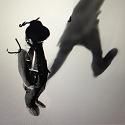
sidewalk - Posts: 171
- Joined: Mon Jan 13, 2014 10:37 am
- Reputation: 851
Re: Existentially Crisis-ing
edit
- 1
Last edited by sidewalk on Tue Jul 03, 2018 3:06 pm, edited 1 time in total.
-

sidewalk - Posts: 171
- Joined: Mon Jan 13, 2014 10:37 am
- Reputation: 851
Re: Existentially Crisis-ing
Soooooooo I'm gonna go ahead and dive into what a lot of other people reading this are probably thinking which is that I'd love to discuss some of this stuff but don't have the knowledge base to discuss it well, and I don't want to clog the thread with a bunch of rambling that could be better addressed by reading a book than by some form of debate/discussion. , you're obviously very well read/educated; anything you could recommend to people who want to contribute to the thread to help get some more formal grounds for discussion?
As far as the topic at hand, the whole "if the mind didn't exist how would life have meaning" argument to be rather boring. The mind does exist. Nihilism in general seems very selfish.
As far as the topic at hand, the whole "if the mind didn't exist how would life have meaning" argument to be rather boring. The mind does exist. Nihilism in general seems very selfish.
- 5
-
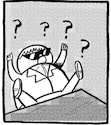
UnwashedMolasses - Posts: 551
- Joined: Fri Sep 27, 2013 9:42 pm
- Reputation: 2222
Re: Existentially Crisis-ing
oolo
- 1
Last edited by sidewalk on Sun Oct 02, 2016 4:45 pm, edited 2 times in total.
-

sidewalk - Posts: 171
- Joined: Mon Jan 13, 2014 10:37 am
- Reputation: 851
Re: Existentially Crisis-ing
first, to address the truth/fact thing vis a vis nihilism: do you believe in the truth/factuality of a priori analytic statements? are the statements "triangles have three sides" or "all bachelors are unmarried" true statements? since these are statements that don't rely on anything beyond themselves, statements about them are necessarily true. would a three sided figure have three sides if no mind thought about it? these kind of truths would be mind independent. assuming you buy into this, we can say there are at least SOME things (whether or not they're ontologically extant is a different matter) that are true.
moving onto the response to nihilism, the idea that lack of evidence of something implies non-existence isn't sufficient reason to deny something. with (which i don't buy into), it's possible that moral claims, when made, are real, just like the triangle being a three-sided figure. how we would perceive that has a couple of ideas, but not being able to immediately perceive it doesn't mean it's not worth investigating. this is currently what i'm thinking about.
as to the idea of theism, i find that the that's so popular nowadays (and rightly so, it works) seems to limit the boundaries of the "knowable" in the common language. that is to say, while the scientific method has great things to say about the natural world and how it is, many take this to mean that if it is unprovable via scientific method, it somehow doesn't exist. that doesn't follow, though. theism, philosophically, is incompatible with the former interpretation but has no problems with the latter. being amenable to that kind of thing, i've found, is a pretty good way to be open to a lot of things. rather than make faith or theistic claims based on the scientific method, it seems just as viable to do it rationally - the completeness or sensibility of the ontology of certain theistic philosophies makes just as much "sense" in vacuum as postivist ones do. of course, some are just complete fucking garbage, but being able to tell the difference using a tool besides the scientific method is a good skill.
moving onto the response to nihilism, the idea that lack of evidence of something implies non-existence isn't sufficient reason to deny something. with (which i don't buy into), it's possible that moral claims, when made, are real, just like the triangle being a three-sided figure. how we would perceive that has a couple of ideas, but not being able to immediately perceive it doesn't mean it's not worth investigating. this is currently what i'm thinking about.
as to the idea of theism, i find that the that's so popular nowadays (and rightly so, it works) seems to limit the boundaries of the "knowable" in the common language. that is to say, while the scientific method has great things to say about the natural world and how it is, many take this to mean that if it is unprovable via scientific method, it somehow doesn't exist. that doesn't follow, though. theism, philosophically, is incompatible with the former interpretation but has no problems with the latter. being amenable to that kind of thing, i've found, is a pretty good way to be open to a lot of things. rather than make faith or theistic claims based on the scientific method, it seems just as viable to do it rationally - the completeness or sensibility of the ontology of certain theistic philosophies makes just as much "sense" in vacuum as postivist ones do. of course, some are just complete fucking garbage, but being able to tell the difference using a tool besides the scientific method is a good skill.
- 3

-
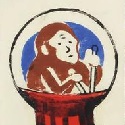
odradek - Posts: 993
- Joined: Fri Aug 02, 2013 4:53 pm
- Reputation: 6056
Re: Existentially Crisis-ing
polio
- 2
Last edited by sidewalk on Sun Oct 02, 2016 4:46 pm, edited 1 time in total.
-

sidewalk - Posts: 171
- Joined: Mon Jan 13, 2014 10:37 am
- Reputation: 851
Re: Existentially Crisis-ing
polo
- 0
Last edited by sidewalk on Sun Oct 02, 2016 4:46 pm, edited 1 time in total.
-

sidewalk - Posts: 171
- Joined: Mon Jan 13, 2014 10:37 am
- Reputation: 851
Re: Existentially Crisis-ing
I spent a long time reading philosophy and linguistics, and I feel like I'm very comfortable with myself and where I stand in this world. I think a lot of people try to identify with one school of thought or another, and it's very rare that you'll really fit in - especially when your life is so very different to the thought leaders you love.
Here are the things that I believe in strongly that change me inwardly and outwardly:
- Think about everything. Think again. If it hurts think until you know how to either make it stop or stop it happening again.
- If there is a simpler word you can use, use it. This is something found in all good style guides and when you get over the initial "but I want to show everyone how smart I am with complicated syntax" it really is the best way of writing, and it makes for healthier thought too.
- Quitting something doesn't hurt that bad. Quitting God seemed like a big deal, so did animal products in my food and smoking. They all took about 3 weeks to break the habit. Quitting feels good and can make you much more of a person.
Here are the things that I believe in strongly that change me inwardly and outwardly:
- Think about everything. Think again. If it hurts think until you know how to either make it stop or stop it happening again.
- If there is a simpler word you can use, use it. This is something found in all good style guides and when you get over the initial "but I want to show everyone how smart I am with complicated syntax" it really is the best way of writing, and it makes for healthier thought too.
- Quitting something doesn't hurt that bad. Quitting God seemed like a big deal, so did animal products in my food and smoking. They all took about 3 weeks to break the habit. Quitting feels good and can make you much more of a person.
- 9
-

Bobbin.Threadbare - Posts: 941
- Joined: Tue Oct 01, 2013 5:07 pm
- Location: London
- Reputation: 6104
Re: Existentially Crisis-ing
if we're going to deny then there's really nothing to discuss - it's trivial in that it tells us nothing about anything.
in the interests of drawing people into the conversation, let's do a quick reading on one of the basic moral problems of philosophy as presented in
i don't spend much time with ancient philosophy but the is a popular piece, easy enough to read and brings up great questions about divine command theory (which i doubt anyone here is really beholden to) and a good introduction to the kind of problem of determining a basis for belief and, relative to divine command theory, what precedes what.
in the interests of drawing people into the conversation, let's do a quick reading on one of the basic moral problems of philosophy as presented in
i don't spend much time with ancient philosophy but the is a popular piece, easy enough to read and brings up great questions about divine command theory (which i doubt anyone here is really beholden to) and a good introduction to the kind of problem of determining a basis for belief and, relative to divine command theory, what precedes what.
- 4

-

odradek - Posts: 993
- Joined: Fri Aug 02, 2013 4:53 pm
- Reputation: 6056
Re: Existentially Crisis-ing
ppolio
- 0
Last edited by sidewalk on Sun Oct 02, 2016 4:46 pm, edited 1 time in total.
-

sidewalk - Posts: 171
- Joined: Mon Jan 13, 2014 10:37 am
- Reputation: 851
Re: Existentially Crisis-ing
and the thought experiments crossed my mind this week while I was considering process art. Consider : theoretically anyone could take it apart and rebuild with in secret to be exactly the same without anyone finding out, but would it really be the same? It would look the same and it would have the artist's original design, however the artists' process is removed entirely. Would it still belong to the artist at that point, especially since process art celebrates tedious work and craftsmanship?
- 1
-
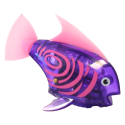
exprof - Posts: 517
- Joined: Wed Jul 31, 2013 7:32 pm
- Reputation: 4715
Re: Existentially Crisis-ing
polio
- 0
Last edited by sidewalk on Sun Oct 02, 2016 4:46 pm, edited 1 time in total.
-

sidewalk - Posts: 171
- Joined: Mon Jan 13, 2014 10:37 am
- Reputation: 851
Re: Existentially Crisis-ing
Same also applies to replacement organs, a field which I'm very hopeful for. If we can 3D print most organs then what's to cause death? Is that a good thing or a bad thing?
- 1
"Let's be vagabonds." - Yohji Yamamoto
-

rjbman - Posts: 1560
- Joined: Sun Sep 29, 2013 11:34 pm
- Location: CO
- Reputation: 6846
Re: Existentially Crisis-ing
polio
- 0
Last edited by sidewalk on Sun Oct 02, 2016 4:45 pm, edited 1 time in total.
-

sidewalk - Posts: 171
- Joined: Mon Jan 13, 2014 10:37 am
- Reputation: 851
Re: Existentially Crisis-ing
Been done before. Two best versions of it that I've seen are the Kovacs novels by Richard Morgan (Altered Carbon, etc) and Implied Spaces by Walter Jon Williams.
- 2
"Let's be vagabonds." - Yohji Yamamoto
-

rjbman - Posts: 1560
- Joined: Sun Sep 29, 2013 11:34 pm
- Location: CO
- Reputation: 6846
Re: Existentially Crisis-ing
poloed
- 0
Last edited by sidewalk on Sun Oct 02, 2016 4:45 pm, edited 1 time in total.
-

sidewalk - Posts: 171
- Joined: Mon Jan 13, 2014 10:37 am
- Reputation: 851
Re: Existentially Crisis-ing
i disagree that logical positivism works and is popular in an academic sense. From what i have seen positivism was abandoned in the 30s and 40s and the problem of verification presents major difficulties. I suppose it could be called popular in the sense that a lot of STEMs hold some sort of determinism/scientific reductionism to be true, but those beliefs rarely stand up to any sort of rigorous analysis.
To change the subject what are peoples favorite resources for philosophy.
I like the podcasts: A partially examined life, Philosophy bites and Elucidations
Obviously Stanford Encyclopedia of Philosophy is a great resource for overviews of thought. I think i'm going to try to get through the Tractatus and Philosophical Investigations just because i find Wittgenstein very interesting and liked the Partially Examined Life podcasts on him. I also think that i'll read Russel's A History of Western Philosophy. I also want to start reading stuff about aesthetics, but a lot of it is written in the continental tradition and it seems very daunting to try to get started with that.
You obviously like philosophy, what are some areas of study you like? What are some readings you'd suggest? Also i remember that you said in the C-T podcast that you were an autodidact in philosophy and that you felt that formal training in philosophy is unnecessary. I disagree and think to have a good handle on the subjects it's better to be trained in academic philosophy. Do you still believe this? Would you care to expand on your thoughts on this?
Edit does anyone want to do a reading group?
To change the subject what are peoples favorite resources for philosophy.
I like the podcasts: A partially examined life, Philosophy bites and Elucidations
Obviously Stanford Encyclopedia of Philosophy is a great resource for overviews of thought. I think i'm going to try to get through the Tractatus and Philosophical Investigations just because i find Wittgenstein very interesting and liked the Partially Examined Life podcasts on him. I also think that i'll read Russel's A History of Western Philosophy. I also want to start reading stuff about aesthetics, but a lot of it is written in the continental tradition and it seems very daunting to try to get started with that.
You obviously like philosophy, what are some areas of study you like? What are some readings you'd suggest? Also i remember that you said in the C-T podcast that you were an autodidact in philosophy and that you felt that formal training in philosophy is unnecessary. I disagree and think to have a good handle on the subjects it's better to be trained in academic philosophy. Do you still believe this? Would you care to expand on your thoughts on this?
Edit does anyone want to do a reading group?
- 1
-

Stingray Sam - Posts: 464
- Joined: Thu Sep 12, 2013 6:03 pm
- Location: Ceres Crossroads
- Reputation: 1290
Re: Existentially Crisis-ing
polo
- 0
Last edited by sidewalk on Sun Oct 02, 2016 4:41 pm, edited 1 time in total.
-

sidewalk - Posts: 171
- Joined: Mon Jan 13, 2014 10:37 am
- Reputation: 851
Re: Existentially Crisis-ing
cool to see theres a philosophy thread going on. as far as resources go philpapers has to be amongst the top, almost all papers that cant be accessed directly on the site can be found on jstor if you have access.
i dont know much about aesthetics but theres been lots of analytic work done in the field. recently ive been attracted towards aesthetic supervenience which i find very appealing. i find myself more drawn to the parts of aesthetics that deal with metaphysics. also i dont think anyone agrees that logical positivism works these days, i remember seeing an interview with a prominent logical positivist where the philosopher (i think carnap) was asked what the "problems" were with the idea to which he replied something along the lines of "all the premises were wrong". kind of funny but yea verificationism is more or less self refuting isnt it?
a reading group would be cool. i might be joining one centered around david lewis since im getting through his work pretty slowly myself. if it happens i could always relay some questions between anyone here who's interested and some people who are pretty knowledgeable in the subject. plus it would be cool because it isnt filthy continental philosophy (joking.. sort of)
also many historical writings are still very good imo. especially with resurgence movements such as neo-aristotelianism that seems to be on the rise these days. also views held by many rationalists such as spinoza are still fairly well respected
edit: sidewalk, not sure what you mean by "here is logic". i think most logicians agree that logic has some metaphysical underpinnings and isnt simply determined by academia. maybe thats not what youre suggesting and im reading too much into this
i dont know much about aesthetics but theres been lots of analytic work done in the field. recently ive been attracted towards aesthetic supervenience which i find very appealing. i find myself more drawn to the parts of aesthetics that deal with metaphysics. also i dont think anyone agrees that logical positivism works these days, i remember seeing an interview with a prominent logical positivist where the philosopher (i think carnap) was asked what the "problems" were with the idea to which he replied something along the lines of "all the premises were wrong". kind of funny but yea verificationism is more or less self refuting isnt it?
a reading group would be cool. i might be joining one centered around david lewis since im getting through his work pretty slowly myself. if it happens i could always relay some questions between anyone here who's interested and some people who are pretty knowledgeable in the subject. plus it would be cool because it isnt filthy continental philosophy (joking.. sort of)
also many historical writings are still very good imo. especially with resurgence movements such as neo-aristotelianism that seems to be on the rise these days. also views held by many rationalists such as spinoza are still fairly well respected
edit: sidewalk, not sure what you mean by "here is logic". i think most logicians agree that logic has some metaphysical underpinnings and isnt simply determined by academia. maybe thats not what youre suggesting and im reading too much into this
- 2
-

absurdmind - Posts: 109
- Joined: Thu Mar 13, 2014 8:38 pm
- Reputation: 301
Re: Existentially Crisis-ing
polo
- 0
Last edited by sidewalk on Sun Oct 02, 2016 4:41 pm, edited 1 time in total.
-

sidewalk - Posts: 171
- Joined: Mon Jan 13, 2014 10:37 am
- Reputation: 851
Re: Existentially Crisis-ing
but its not dictated, thats my point. if you want to dispute the underlying metaphysics of logic please do, simply pointing out that logic can fall into "boxes" (not quite sure what that means) doesnt really say much. also id argue that philosophers clearly do deal with logic and metaphysics. if youre point is that we shouldnt be "limited" in some way by logic itself, then youve lost me. admittedly im not very well read on the metaphysics of logic but i think we have to have at least some commitment to some sort of set theory to be able to pick out and bound variables with quantifiers which i hope you dont reject (if you do id love to hear some alternative).
- 2
-

absurdmind - Posts: 109
- Joined: Thu Mar 13, 2014 8:38 pm
- Reputation: 301
Re: Existentially Crisis-ing
polo
- 0
Last edited by sidewalk on Sun Oct 02, 2016 4:41 pm, edited 1 time in total.
-

sidewalk - Posts: 171
- Joined: Mon Jan 13, 2014 10:37 am
- Reputation: 851
Re: Existentially Crisis-ing
...im not sure what we're arguing about right now. the basis of logic, pedagogical systems, some sort of epistemology? i was defending the idea that logic is not dictated by some whim of academics. to be honest im still not sure where you stand on this position.
i may be way off but are you critiquing my ideas based on some sort of refutation of a posteriori knowledge? i mean, i think my other arguments would be better categorized as a priori if thats relevent? im a little confused right now.
i may be way off but are you critiquing my ideas based on some sort of refutation of a posteriori knowledge? i mean, i think my other arguments would be better categorized as a priori if thats relevent? im a little confused right now.
- 2
-

absurdmind - Posts: 109
- Joined: Thu Mar 13, 2014 8:38 pm
- Reputation: 301
Re: Existentially Crisis-ing
speaking of rejecting philosophy, did you guys see that interview of Peter Unger on his book "Empty Ideas"? What are your thoughts on it? Has anyone read his book?
http://www.3quarksdaily.com/3quarksdail ... unger.html
http://www.3quarksdaily.com/3quarksdail ... unger.html
- 2
-

Stingray Sam - Posts: 464
- Joined: Thu Sep 12, 2013 6:03 pm
- Location: Ceres Crossroads
- Reputation: 1290
Re: Existentially Crisis-ing
havent read the book but based on the interview i think hes gone senile and is using his last shot to boost himself into some wittgenstein-like status.
i mean come on, philosophical movements dont get refuted? we were talking about logical positivism in this thread. plus do we have to mention the progress of the scientific method as philosophical progress? not to mention ethical issues, other issues in metaphysics, phil. of mind, etc. speaking of phil of mind a huge portion of them are involved with scientists, as are philosophers of science, philosophers of physics, biology, chem, etc.. are questions and progress regarding a.i. trivial?
i feel like this is a ruse to make me buy his book. and its going to work. damnit
i mean come on, philosophical movements dont get refuted? we were talking about logical positivism in this thread. plus do we have to mention the progress of the scientific method as philosophical progress? not to mention ethical issues, other issues in metaphysics, phil. of mind, etc. speaking of phil of mind a huge portion of them are involved with scientists, as are philosophers of science, philosophers of physics, biology, chem, etc.. are questions and progress regarding a.i. trivial?
i feel like this is a ruse to make me buy his book. and its going to work. damnit
- 3
-

absurdmind - Posts: 109
- Joined: Thu Mar 13, 2014 8:38 pm
- Reputation: 301
Re: Existentially Crisis-ing
I know nothing mentioned in this thread.
Just thought I'd mention that in an English class we had a discussion that was centered around morals being universal or individual and me and a friend ended up being the only ones saying morals were independently determined.
This one kid got really up in arms about it and it kind of turned me off from the discussion, I hate arguing with unreasonable people mainly because they probably look at me the same way I look at them.
Just thought I'd mention that in an English class we had a discussion that was centered around morals being universal or individual and me and a friend ended up being the only ones saying morals were independently determined.
This one kid got really up in arms about it and it kind of turned me off from the discussion, I hate arguing with unreasonable people mainly because they probably look at me the same way I look at them.
- 3
-
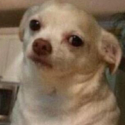
JewTurk - Posts: 590
- Joined: Thu May 29, 2014 3:20 am
- Reputation: 1856
Re: Existentially Crisis-ing
Where is the disconnect? Logic is not dictated by academia. Academia is dictated by logic.
You asked for an alternative after claiming the need for commitment. Whether the knowledge is a priori or a posteriori is irrelevant.
You asked for an alternative after claiming the need for commitment. Whether the knowledge is a priori or a posteriori is irrelevant.
- 0
-

sidewalk - Posts: 171
- Joined: Mon Jan 13, 2014 10:37 am
- Reputation: 851
51 posts
• Page 1 of 2 • 1, 2
Who is online
Users browsing this forum: No registered users and 19 guests
